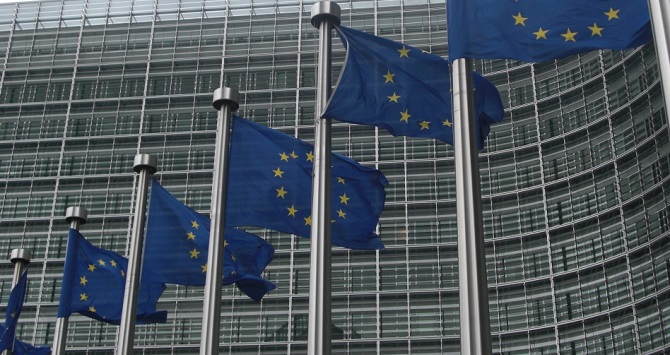Media regulation in the UK has been affected, at least in part, by the requirements of European Union (EU) law. So, which areas are likely to change once the UK formally leaves the EU? Lorna Woods, Professor of Media Law at the University of Essex, addresses some key regulatory areas.
The precise outcome is difficult to predict, of course, because much will depend on the terms of Brexit. This post assumes that the UK will not be part of any European trading area and, specifically, that the European Communities Act 1972 (ECA) will be repealed. The ECA is the vehicle for implementing much, but not all, of EU law. This post focuses on audiovisual content rather than infrastructure, which is governed by the European Commission’s Communications Package. Copyright issues are not considered here.
Public Service Broadcasting and the BBC
Public service broadcasting (PSB) is not directly regulated by the EU as it is seen to be a matter of cultural, and therefore Member State, competence. EU law does, however, affect the scope of public service provision insofar as it falls within exceptions to general competition law and state aid rules. This division of competence is reflected in the Protocol on the System of Public Service Broadcasting (Protocol 9 attached to the Treaty of Amsterdam ). Under EU law, support for public services must be justified, but the European Commission accepted the UK’s existing approach, which had a focus on value for money. Since the UK’s approach does not seem to have been driven by a need to comply with state aid rules, while there may be changes to public service broadcasting, they would not automatically follow from Brexit.
Note that the European Broadcasting Union, which is the association of European public service broadcasters, is not set up under EU law and indeed already has members from outside the EU. Given its non-EU law origins, Brexit would not necessitate any change there.
The Audiovisual Media Services Directive
The Audiovisual Media Services Directive (AVMSD) – formerly the Television without Frontiers Directive – regulates broadcast content directly. It was implemented in the UK by primary legislation: the Broadcasting Act 1990 and then the Communications Act 2003, though subsequent changes to the AVMSD were implemented by statutory instruments: the Audiovisual Media Services Regulations 2009 (SI 2009/2979), the Audiovisual Media Services (Product Placement) Regulations 2010 (SI 2010/831) and the Audiovisual Media Services Regulations 2010 (SI 2010/419) . So while the acts would remain, these updating regulations would fall. Notably, the regulations extend the basic level of regulation to video on demand services and introduce rules on product placement.
So would UK regulation be likely to change if AVMSD were no longer the driving force? Not all current content standards were derived from the AVMSD but were part of domestic assumptions about content regulation anyway. Some aspects of AVMSD requirements reflected pre-existing UK practice or UK concerns (for example, around advertising for products that are high in fat, salt or sugar (HFSS), and around public interest content (‘crown jewels’)).
There is a question about where government policy stands on product placement. Product placement used to be prohibited in the UK, but AVMSD allowed (but did not require) product placement as long as certain conditions were met. When these rules were introduced, the UK government first stated that it would continue to prohibit product placement, but then changed position and introduced rules allowing the practice. Given that, as outlined above, the relevant regulations would lose their legal basis, does this mean the legal regime would revert to what it was before (i.e. that product placement would be prohibited), or does it mean that there would be a gap in regulation (i.e. product placement would be allowed with no conditions placed on it)? Action would be required to tidy this up, but it is difficult to predict what the political response would be.
European quotas and independent quotas would be another area where we might see local change, though political action would be required to effect this as the rules are in the Communications Act. Further, the UK manifestation of the quotas can be found in the ‘M25 rule’ (the regional quotas rules found in ss286 and 288 Communications Act to ensure that a certain percentage of programming is made outside London), which is not purely EU driven. There might also be some concern about the consequences of lost EU funding on Welsh and Gaelic language programme production.
Of course, coming out of the EU may give rise to some international trade concerns. A basic principle of the General Agreement on Trade and Services (GATS) is the ‘most favoured nation’ principle (MFN). Article 11.1 GATS specifies:
“With respect to any measure covered by this Agreement, each Member shall accord immediately and unconditionally to services and service suppliers of any other Member treatment no less favourable than that it accords to like services and service suppliers of any other country”.
The only permitted departure from MFN relates to preferential treatment among countries that are members of regional trading arrangements. Post-Brexit, the UK could fall out of this preferential treatment exception with regard to the other EU Member States (British programming would also probably cease to be ‘European’ for the purposes of the AVMSD quota rules). Additional rules under GATS seek to ensure access to the domestic markets for foreign service providers (Article XVI GATS) and that they be accorded national treatment (Article XVII GATS). Television is considered to be a service falling within GATS. These rules apply in relation to a sector only when a signatory state makes commitments to this effect. The EU and its Member States have so far not entered into such commitments in relation to the audiovisual sector. Will Brexit trigger a reconsideration of this as far as the UK is concerned? If so, to what extent will it be able to resist the dictates of US trade policy when negotiating with the US, particularly with regard to online services?
The UK may well have been sceptical about the extension of regulation to video on demand (VOD), preferring a self-regulatory approach (see all the problems with ATVOD and its and the arguable distinction between Ofcom’s approach and that of the Court of Justice of the European Union). With the loss of the 2009 Regulations, there will be no statutory regime, effectively taking us back to a system of self-regulation, if any regulation at all. The recent proposals to amend the AVMSD include a obligations on “video sharing platforms”. The draft reads:
Art. 28a (1) …… Member States shall ensure that video-sharing platform providers take appropriate measures to:
(a) protect minors from content which may impair their physical, mental or moral development;
(b) protect all citizens from content containing incitement to violence or hatred directed against a group of persons or a member of such a group defined by reference to sex, race, colour, religion, descent or national or ethnic origin.
The definition of ‘video-sharing platform’ (see proposed Article 1(aa) AVMSD) extends EU regulation beyond the platforms currently regulated by AVMSD to include platforms which do not have editorial control over content. While the UK seems quite keen on content control – at least as far as pornographic content is concerned; see Part 3 of the Digital Economy Bill – the preference in general seems to be to rely on self-regulation.
Note that the Council of European Convention on Transfrontier Television (CTT) would still apply to UK. The Convention does not, however, deal with recent developments in the audiovisual sector, and attempts to update it have run into difficulties as – post-Lisbon – the European Commission claims exclusive EU competence in respect of the Member States who are also signatories to Convention.
Practical Impact
London would no longer be a sensible EU base for pan-Euro satellite services or services trying to circumvent inconvenient local rules on advertising to children: transmissions from the UK would be subject to regulation in the EU states. Some satellite television companies which are currently based in London may therefore move elsewhere. Taking into account language issues and broad similarity of regulatory approach, Dublin could be an obvious choice.
While through leaving the EU the UK may gain some freedom of choice with regards to regulatory approach – especially as regards on-line services – it seems that there may be a significant price to pay in terms of loss of business.
This post gives the views of the author and does not represent the position of the LSE Media Policy Project blog, nor of the London School of Economics and Political Science.






One issue that appears to have been overlooked is the restrictions on ownership of certain TV and radio licenses contained in Schedule 2 to the Broadcasting Act 1990 (as amended). Presently ownership of some licenses is only open to individuals and corporations that are based within the European Economic Area (EEA). There is no real reason why the government should change this, unless, of course, other EEA nations proposed to exclude UK nationals or corporations from ownership of their licenses. If they did so then the present ownership restrictions might be used as a bargaining chip.
Here is a link from the national archives (Leveson Inquiry) to a document by DCMS summarising the changes brought in by the Communications Act 2003:
http://webarchive.nationalarchives.gov.uk/20140122145147/http:/www.levesoninquiry.org.uk/uploads/2012/07/DCMS-submission_Narrative-on-media-ownership.pdf
See paras 43-47.
There is a discussion there on the difficulties of retaining nationality requirements as well as a summary of the position in the Communications Act 2003.
For those interested, here is a list of the current licensees, covering DTT as well as satellite and cable:
http://licensing.ofcom.org.uk/tv-broadcast-licences/current-licensees/
Interesting thoughts. Although I am not clear why the UK SIs that update the AVMS Directive will fall away (unless they are repealed). Even if they are based on EU legislation, as they have been transposed are they not now part of UK law? The larger points for me are around:
a) what happens to EU regulations? By definition they are directly applicable and so have not been transposed and which, absent any action, will fall away once we leave the EU
b) what will we choose to do with the Digital Single Market package that is currently wending it’s way through the process
I was assuming that leaving the EU would result in the repeal of the European Communities Act 1972, as that act gives EU law its legal effect in the UK domestic legal order either through direct applicability or by providing a legal base for the use of statutory instruments as implementing tools for directives. If the ECA 72 is repealed, then any SI that uses the 1972 Act as a legal base will on its repeal be without a legal base and I assume would therefore fall. This is obviously not the case for directives which have been implemented by primary legislation (such as the Communications Act) or where SIs have been used but relying on a different legal base.
I would agree with your point (a); there will a job there deciding what will need to be enacted in domestic law.
I agree that the DSM will require some choices to be made – especially where we have issues about changes to copyright. Copyright raises a whole lot of questions though, not least about the interpretation by English judges of the CDPA in the light of the ECJ’s interpretation of the InfoSoc Directive.